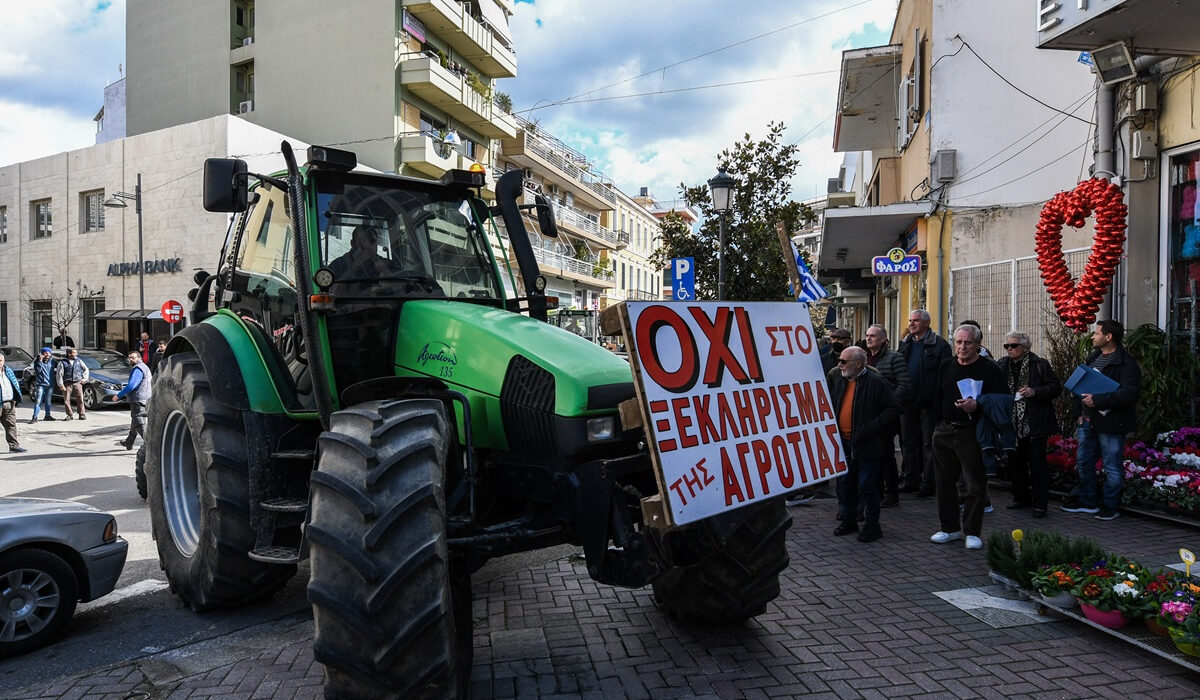In the wake of the farmers’ meeting with Greek Prime Minister, Kyriakos Mitsotakis, and the commitments he made, Government Spokesperson Pavlos Marinakis stepped forward to convey a positive atmosphere, although farmers remain steadfast in charting the course of their mobilizations.
As articulated by Marinakis, the fiscal margins have been exhausted, however, farmers persist in claiming there are numerous gaps and are convening again to decide the form their actions will take.
The government spokesperson emphasized that the manner in which the farmers’ demands were submitted was ‘very constructive’ and added that the Prime Minister’s response was ‘targeted.’
He stressed that the government is ‘providing electricity for two years to farmers at the cost limits for those without debts.’
He also affirmed that there will be a ‘settlement of all debts over a decade without incurring interest.’
Regarding whether the blockades will end, Marinakis noted, ‘I cannot predict their decision. I am optimistic that the situation will ease in terms of mobilizations.’
He also noted that the government’s fiscal limits have been ‘exhausted’ and explained that ‘It was a comprehensive proposal. It was not temporary and provisional measures.’
Finally, he revealed that there will be ‘another meeting on issues concerning Thessaly.’
New farmers’ assembly on Wednesday – ‘The fight must continue’
On his part, Rizos Maroudas, the president of the Federation of Agricultural Associations of Larissa, expressed the opinion that the mobilizations should continue and escalate. He emphasized that final decisions will be made at the roadblocks. He stated, ‘Our demands have not been fully satisfied. We will go to the roadblocks, inform our colleagues across Greece, and make our decisions at the roadblocks. The fight must continue; the roadblocks need to be strengthened further, in order for our survival demands to be satisfied’.
At the same time, an update on the current situation was provided at the blockade in Platykampos, with the president of the local Agricultural Association, Mr. Koukoutsis, stating that a new assembly will take place on Wednesday, where detailed information will be provided.
He expressed the desire for the blockades to collectively decide on how to proceed with their mobilizations since the measures of the Prime Minister leave many gaps.
After the meeting, the Ministry of Environment and Energy released 13 questions and answers pertaining to the reduction of costs in rural electricity, explaining:
- Who can benefit from the government’s program for affordable rural electricity, and how will it be implemented?
- What will be in effect for the next 8 years?
- How can an interested party apply for participation, and when will the submission period commence?
- Given that charges will differ for beneficiaries with overdue debts to electricity providers, is there an option to settle these arrears, and under what conditions?
- Which providers will partake in the program and in what manner?
- As company participation is not mandatory, is there a risk of a sudden increase in costs for the 2/3 of consumption not covered by the controlled price after the first two years?
- How much renewable energy capacity is required for the implementation of this program? What is the timeline for project completion?
- Why can these prices be offered through bilateral long-term contracts and not through the market?
- From which provider will the 10% discount on rural electricity be offered, and for how long?
- Is there a provision for regulating debts to DEI (Public Power Corporation) and other providers of Local and General Improvement Organizations?
- What is the scope of the ‘Apollo’ program, and how will it be precisely implemented?
- What are the benefits of the ‘Apollo’ program?
- Will there be a subsidy for autonomous photovoltaic systems, enabling farmers to meet their energy needs?





